Search
CIL Leadership Resources
Leadership Resources
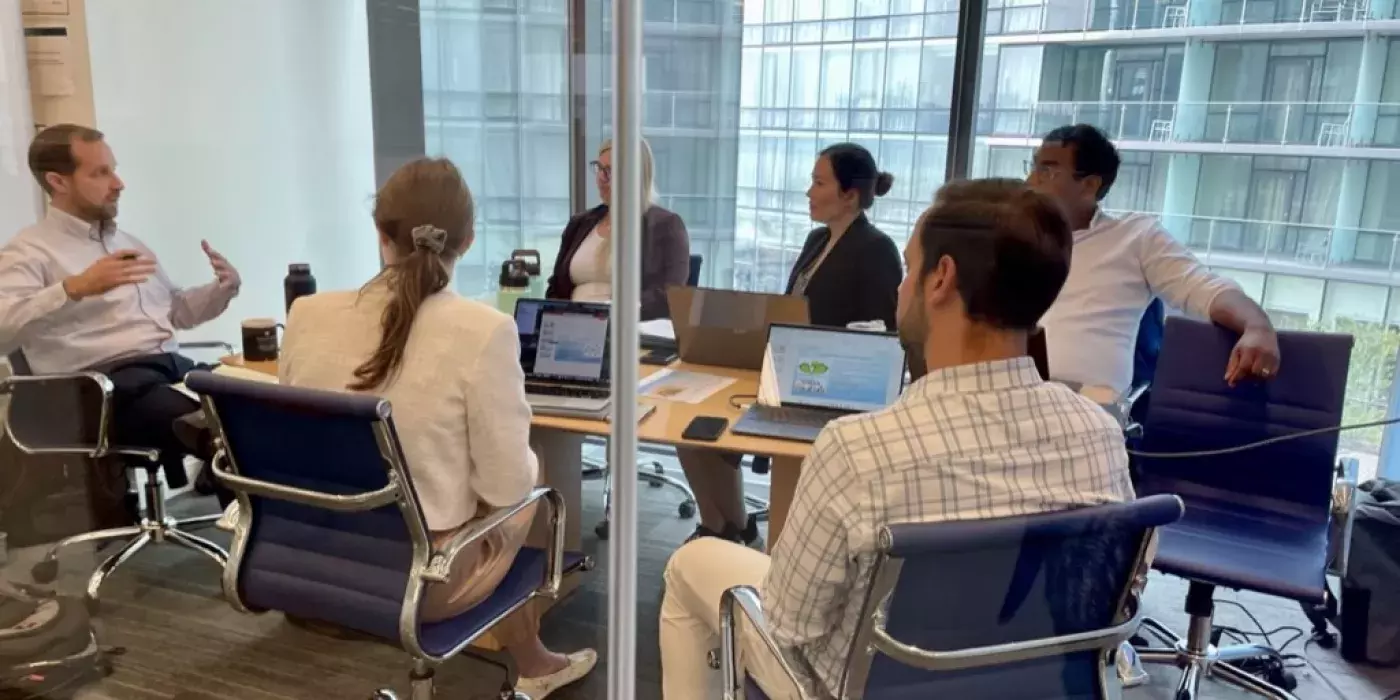
Leadership Resources
The Center for Innovative Leadership engages not only the faculty and students of Johns Hopkins University, but also acts as a resource to leaders across all industries and organizations, providing evidence-based guidance for leading in the modern world of work. From in-depth Field Guides to cutting-edge Research Briefs, the Center produces a range of resources translating faculty research and expertise into actionable insights for practicing leaders.
Field Guides
CIL designed the Field Guide series to help leaders navigate the increasingly complex world of work, armed with a nuanced understanding of key challenges identified in cutting-edge organizational research. Each Field Guide is designed to illuminate a core challenge facing today’s leaders and deliver effective, evidence-based guidance and practices for leaders to deploy in their own work. These in-depth resources are intended for use by leaders in all industries and at all levels of an organization, not only as a “how-to” guide for key leadership decisions and actions, but also as a broader resource for personal development, learning, and growth as a leader.

A Field Guide to
Leading Dynamic Teams
Leaders today face unique challenges and new questions about how their teams should work together – particularly as organizations move to more flexible work arrangements and temporary team structures.
The purpose of our Field Guide to Leading Dynamic Teams is to provide an accessible, practical resource for leaders to think innovatively about how they design and manage teams within their organization. The Guide highlights key practices that can be implemented quickly and seamlessly today as leaders reimagine how to best run meetings, share information, and allow for peer-to-peer leadership in a way that keeps employees engaged, fulfilled and productive.
Research Briefs
The Center frequently releases short Research Briefs, highlighting and summarizing CIL faculty research findings and how they impact the world of work. The briefs are designed to facilitate the rapid transfer of research-to-practice, helping leaders shape their practices with the latest findings in academic research.
Recent Research Briefs
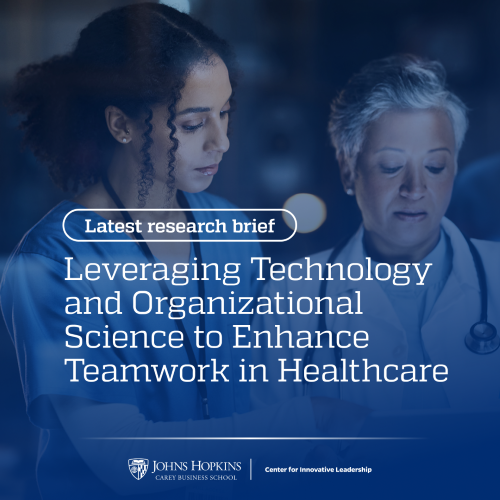
| Leveraging Technology and Organizational Science to Enhance Teamwork in Healthcare |
Remote Workforce Leadership Lessons from Online Collaboration Communities | 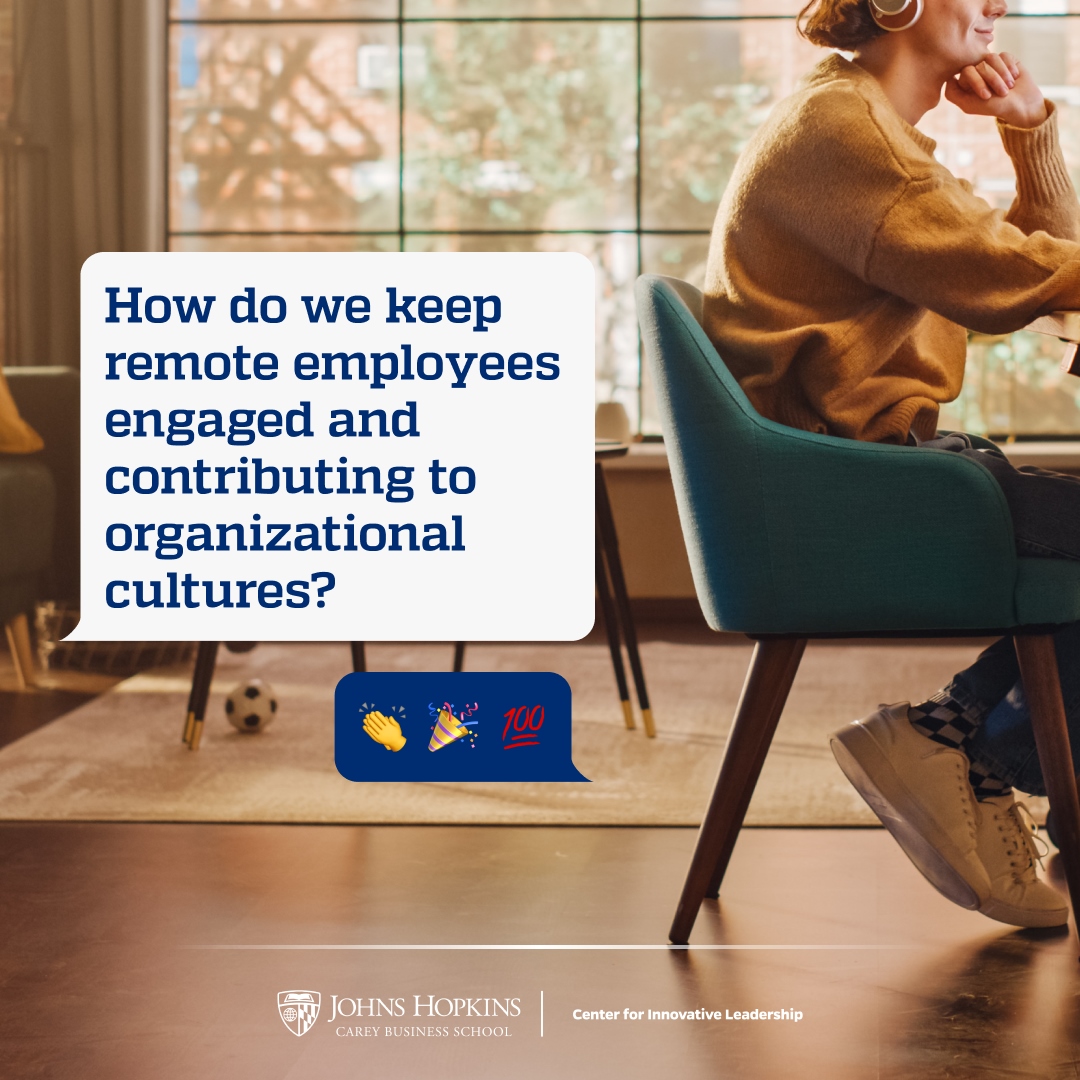
|
‘Moral Beacons’ Provide Ethical Leadership in the Workplace
| |
Ethical Leadership Strengthens Team Efficacy and Social Cohesion | 
|
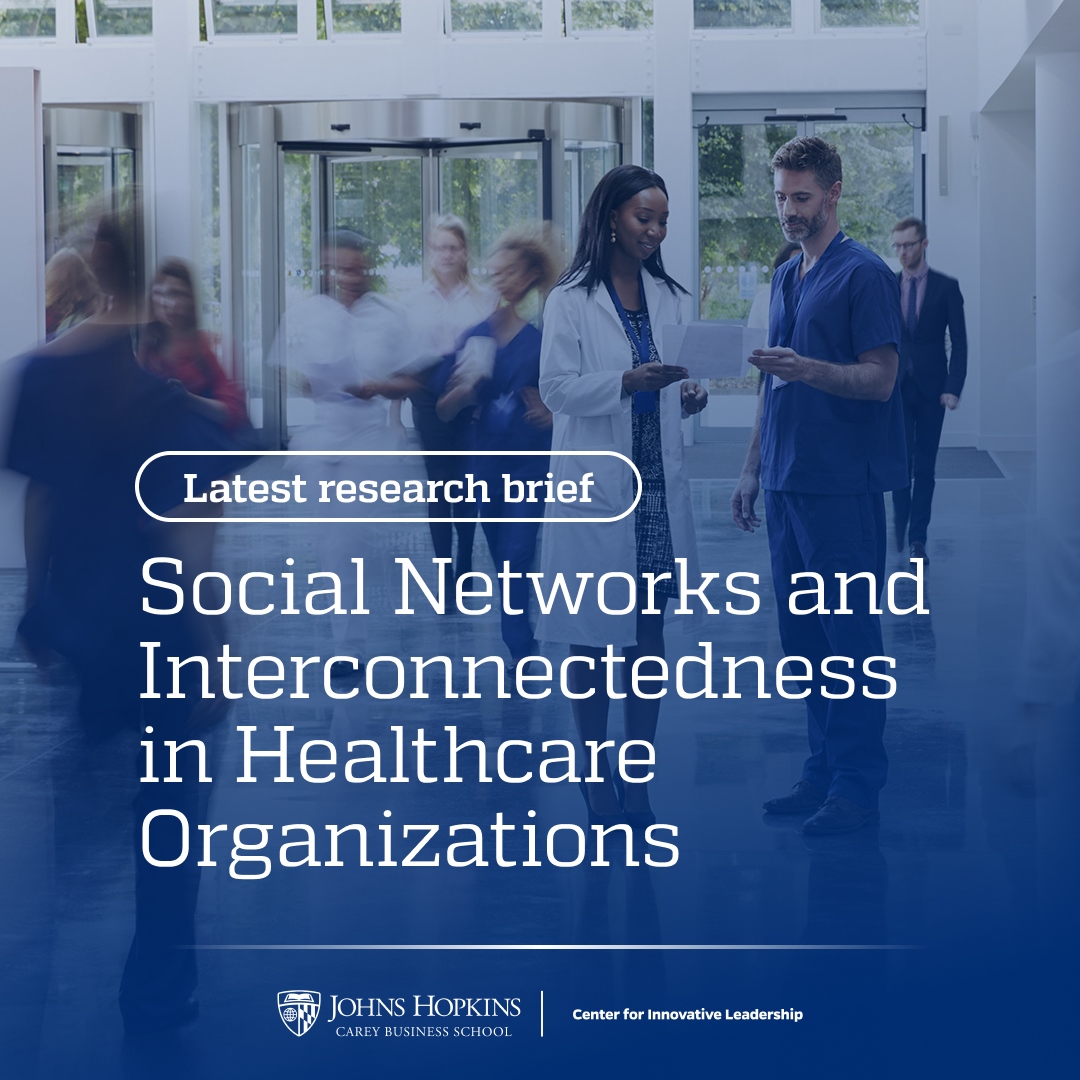
| Understanding the Nuances of Social Networks and Interconnectedness in Healthcare Organizations
|
Leadership Lessons for Multidisciplinary Teams in Healthcare and Beyond | 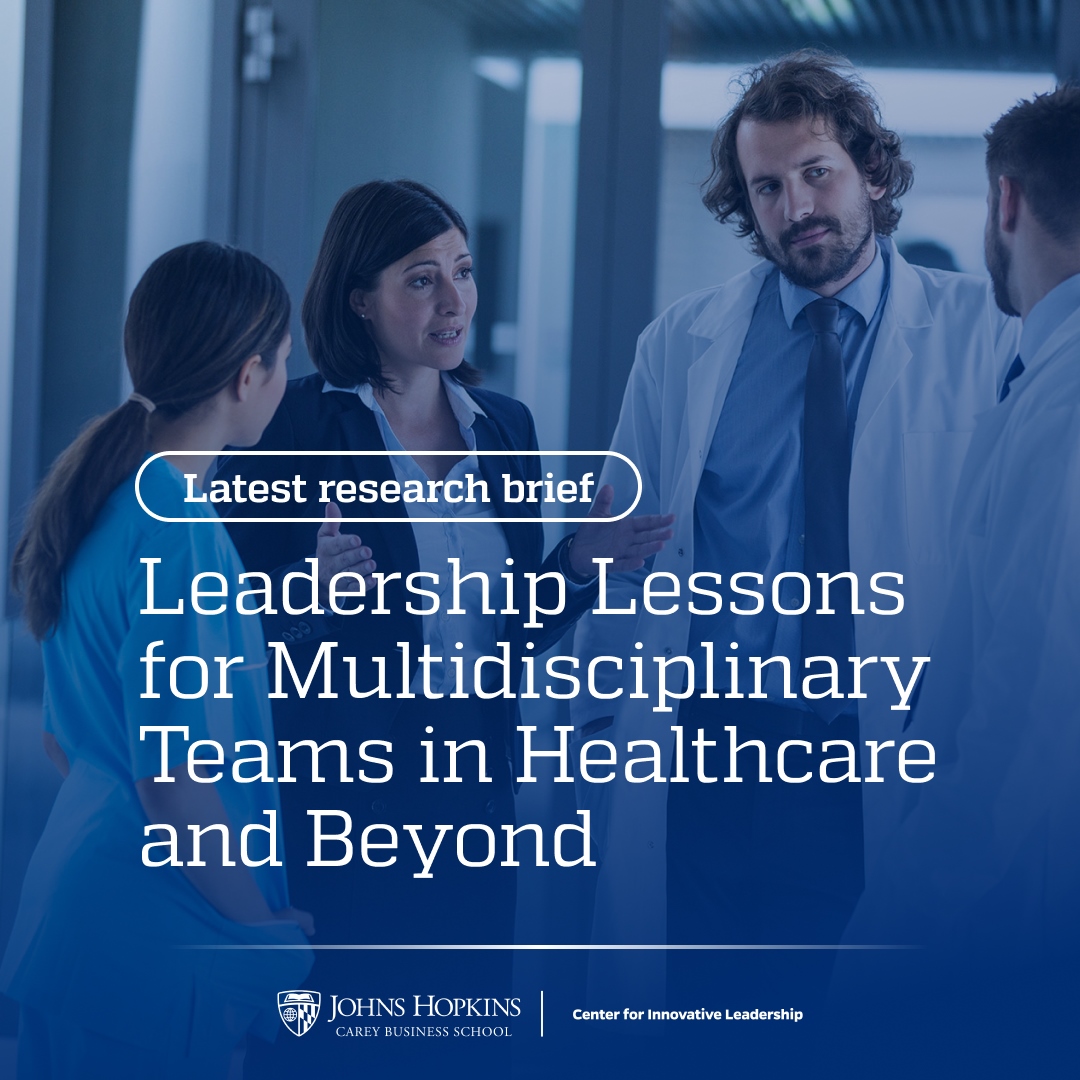
|

| The Unheard Voice of the Upwardly Mobile
|
Allyship for Gender Equity at Work | 
|

| How Structure and Gender Composition Effect A Team’s Collective Ability to Get Work Done |
The Value of Respect in Nurse-Physician Relations | 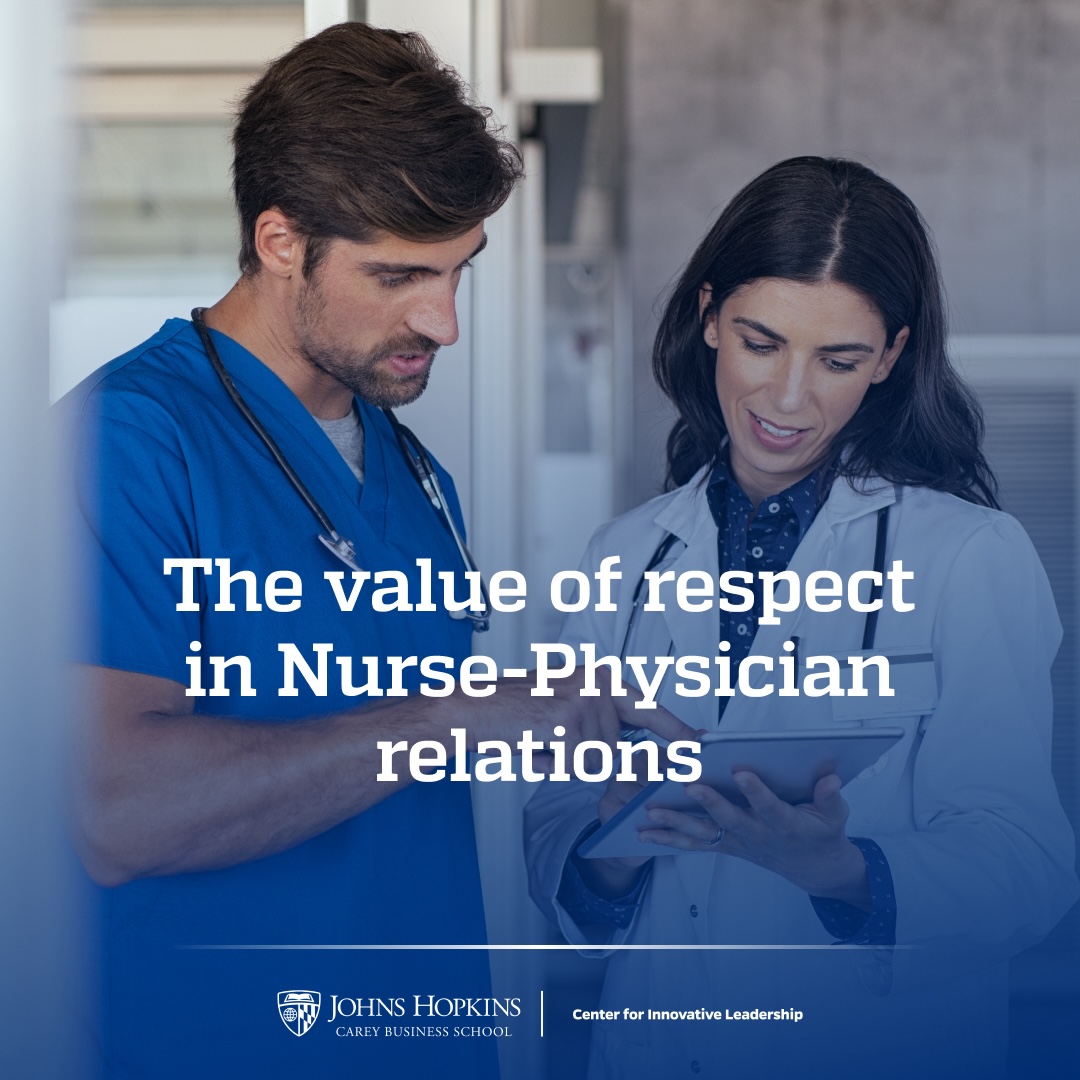
|

| How Female CHROs Break the Glass Ceiling of the C-suite |
What Can 50 Years of Leadership Communication Research Tell Us? | 
|

| Crisis Management Reimagined: Creativity at the Edge of Chaos |
The Restless Entrepreneur | 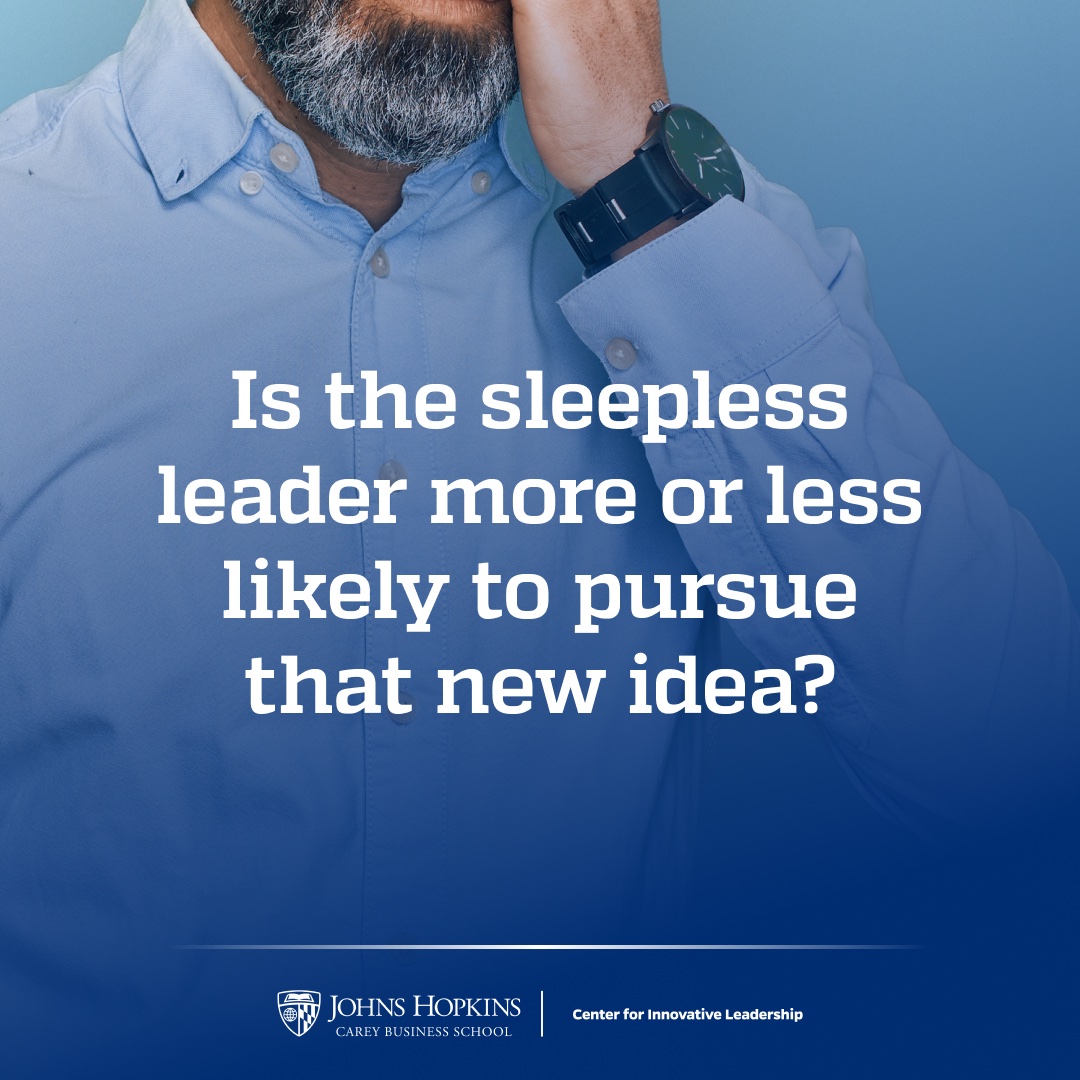
|
Financial aid resources for international students
Financial aid resources for international students

Admissions
Students come from all over the world to study at Johns Hopkins Carey Business School. As a global university, the diversity of our students is an essential element of our academic programs, fostering a shared understanding of the global economy.
Carey is one of the first 10 business schools where the entire Full-time MBA program is STEM-designated. With this advantage, international, full-time MBA students with F-1 visas may be eligible for Optional Practical Training (OPT) extensions. Many of our full-time Master of Science programs are also STEM designated, including:
- Business Analytics and Artificial Intelligence
- Finance
- Information Systems and Artificial Intelligence for Business
- Marketing
Financial aid for international students
The Johns Hopkins Office of Student Enrollment and Account Management, or SEAM, is the central office at Johns Hopkins University for financial aid, billing and payments, and registration. Carey students and applicants work with SEAM on a variety of questions and processes related to these topics. If you’re not sure when to contact SEAM, please reach out to Carey’s Admissions team to help you get in touch.
While federal aid is not available for international students, there are other ways to help pay for your degree. International students are considered for merit scholarships that are available in their program of admission, most of which do not require a separate application. Merit-based scholarships are limited, and competitive, and availability can vary. Students receiving scholarship funding are notified at the time of admission. Merit-based scholarships for international students include:
- MBA scholarship opportunities
- Endowed scholarships for both MBA and Master of Science students
- Reaching Out MBA Fellowships (separate application required)
International students can also take advantage of private scholarships, some of which are specific to international students. Carey also maintains a scholarship e-Bulletin which provides information on need-based and merit scholarships, grants, and fellowships offered by private agencies and organizations. If awarded, please notify us by submitting an online form via SEAM so we can congratulate you and update our records to reflect your accomplishments.
International students searching for private loans can use ELM Select to find, compare, and apply for loans with various lenders that best fit their financial situation. International students should select "International/DACA” to view lenders.
Contact Carey’s Admissions team with questions about merit-based scholarships awarded by the Office of Admissions. Please refer to SEAM for questions about private student loans.
Payment methods and plans
Johns Hopkins University offers several payment options. We accept international wire payments through Flywire or Convera. These vendors make it easy for international students to make payments in their own currency, using local payment methods, from the safety and convenience of their home. Both vendors offer various payment methods, a wide range of international currency options, competitive exchange rates, and the convenience of paying through a local bank. To learn more about online wire payments, please visit SEAM’s payment methods webpage.
With a U.S. bank account, international students can sign up for a monthly payment plan to pay their tuition and fees. Carey offers students two payment plan options to pay their tuition and fees. Please refer to Payment Schedule A and Payment Schedule B for the current options. Any questions about payment plans should be directed to SEAM.
For more information about payment plans and methods, please visit SEAM’s Payment Methods webpage.
Tuition rates
International student tuition rates are the same as those for domestic students. Costs for all academic programs are available on the tuition and fees webpage.
To receive an I-20 as an F-1 student, you are required to provide documented proof of funding equal to all tuition and living expenses for one academic year. Estimated living costs by program are listed on our tuition and fees webpage.
For your privacy and security, do not include bank statements or other financial documents with your application. Johns Hopkins’ Office of International Services will provide instructions on how to send this information after you accept your offer of admission and submit your enrollment deposit.
Questions?
Reach out to Carey’s Admissions team. Our team will put you in contact with SEAM on an as-needed basis.
Andrew Ching, PhD
Speaking from experience
Pandemic has slowed medical innovations, Toby Gordon study states
Alumna uses Executive Education to help transition from team member to team lead
Leveraging Technology and Organizational Science to Enhance Teamwork in Health Care
TSI Conferences and Events
Conferences and Events

Technology and Society Initiative
Upcoming events
The following events feature faculty affiliated with the Johns Hopkins Carey Business School Technology and Society Initiative
Check back for future events
Recent events
Eighth Annual NABE Tech Economics Conference & Industry Job Fair: Tec24: Economics in the Age of Algorithms, Experiments, and AI
Julia Levine, Michael Luca, Ozge Sahin, Colleen Stuart
EmTech 2024
Michael Luca
TSI Roundtable: Technology and Cities
December 3, 2024
Recent technological advances offer cities new opportunities to enhance services, improve quality of life, and strengthen communities. Universities play a role in advancing these efforts by conducting policy relevant research, bridging research and practice, and collaborating with local governments to develop a toolkit for leveraging for the social good. The JHU Carey Technology and Society Initiative has been active in this area, partnering with companies and governments.
On December 3, the Tech and Society Initiative hosted a roundtable discussion exploring the intersection of analytics, technology, and cities. Following opening remarks by Lindsey Parker, chief of staff to DC Mayor Muriel Bowser, the conversation explored paths to leverage technology to improve city life.
TSI Roundtable: Assessing Privacy Regulations
November 19, 2024
Johns Hopkins University Bloomberg Center, 555 Pennsylvania Ave. NW, Washington, D.C. 20001
Johns Hopkins University Bloomberg Center, 555 Pennsylvania Ave. NW, Washington, D.C. 20001 As the scope and scale of data collection continue to increase, policymakers around the globe are exploring ways to balance companies’ desire to leverage consumer data with the desire of customers to understand and influence whether and how their data is being used. On November 19, the Tech and Society Initiative hosted a roundtable discussion on privacy regulations. Following opening remarks by Devesh Raval, the Deputy Director for Consumer Protection, Federal Trade Commission (FTC), and Nellie Lew, the Assistant Director for Consumer Protection, FTC on the current landscape, there was a roundtable discussion on the tradeoffs involved in different approaches to corporate and government approaches to privacy policy.
On October 8, the Tech and Society Initiative hosted a roundtable discussion on platform regulation. Following presentations by Kush Amlani, Global Competition & Regulatory Counsel at Mozilla, and Gemma Petrie, Principal Researcher at Mozilla, there was a roundtable discussion exploring potential strategies to assess and inform platform regulation.
TSI Roundtable: The Evolving Platform Regulation Landscape
October 8, 2024
Johns Hopkins University Bloomberg Center, 555 Pennsylvania Ave. NW, Washington, D.C. 20001
Major platforms continue to shape our digital experiences as a growing share of the economy moves online. In this evolving landscape, it is critical for business leaders and policymakers to assess the societal impact of platforms. This offers opportunities for platforms to create more human-centered products. Thoughtful regulation can also play a crucial role in fostering a vibrant tech ecosystem that prioritizes consumer protection, competition, and innovation.
On October 8, the Tech and Society Initiative hosted a roundtable discussion on platform regulation. Following presentations by Kush Amlani, Global Competition & Regulatory Counsel at Mozilla, and Gemma Petrie, Principal Researcher at Mozilla, there was a roundtable discussion exploring potential strategies to assess and inform platform regulation.
Panel on the Regulation of Privacy in the U.S.
September 17, 2024 | 4 - 5:30 p.m.
Johns Hopkins University Bloomberg Center, 555 Pennsylvania Ave. NW, Washington, D.C. 20001
Companies now collect, analyze, repackage, and sell extraordinary amounts of data on customers. For instance, companies now track and sell data ranging from person-level records of smart phone locations over time to what people search for online. While this offers the promise of data-driven decisions, new products, and targeted advertisements, it also heightens concerns about privacy.
Business leaders, policymakers, and researchers alike are grappling with how and when to thoughtfully approach issues of data and privacy.
On September 17, Professor Itay Fainmesser (Carey) moderated a discussion with Alessandro Bonatti (MIT), Laura Brandimorte (University of Arizona), Alejandro Rosenberg (Federal Trade Commission), and Daniel Sokol (University of Southern California) on the economics of privacy, including a discussion of recent research on privacy, as well as current and upcoming federal and states' regulations.
Courses
Three-day Executive Education course:
Leveraging AI for Business Success
January 16 - 18, 2025 | 9 a.m. - 4 p.m.
Johns Hopkins University Bloomberg center, 555 Pennsylvania ave. NW, Washington, D.C. 20001
Join this three-day executive program to learn how artificial intelligence is transforming business, and how to leverage it in your company.
Artificial intelligence and machine learning are transforming business and society at an unprecedented rate. As these technologies become central to our lives and the business ecosystem, leaders must be equipped to navigate and leverage their potential. This program is designed to help you do just that, demystifying AI and its applications.
Who should attend? This program is tailored for managers and leaders across sectors—including finance, health care, retail, and manufacturing—and functions such as product management, research and development, sales, marketing, and talent management. No prior technical knowledge is required.
What will you learn?
- Understanding AI/ML: Gain a comprehensive overview of AI and ML technologies, including predictive models and Generative AI (GenAI), and learn how they can drive business efficiency and growth.
- Becoming AI-ready: Learn how to make your organization AI-ready, including the internal structural and functional changes needed to integrate AI effectively.
- Practical applications: Explore successful AI applications and real world case studies in different industries and how they can be adapted to your organization’s needs.
- Simulations and hands-on experience: Engage with AI capabilities through interactive simulations to see real-world applications in action.
- Ethical and risk considerations: Delve into the ethical implications and risks associated with AI, and learn best practices for designing responsible AI solutions.
Why attend? This program will provide you with actionable insights and practical tools to harness AI/ML for strategic advantage. You'll come away with the knowledge to lead your team through the AI revolution, ensuring your organization not only adapts but thrives in the evolving landscape.


